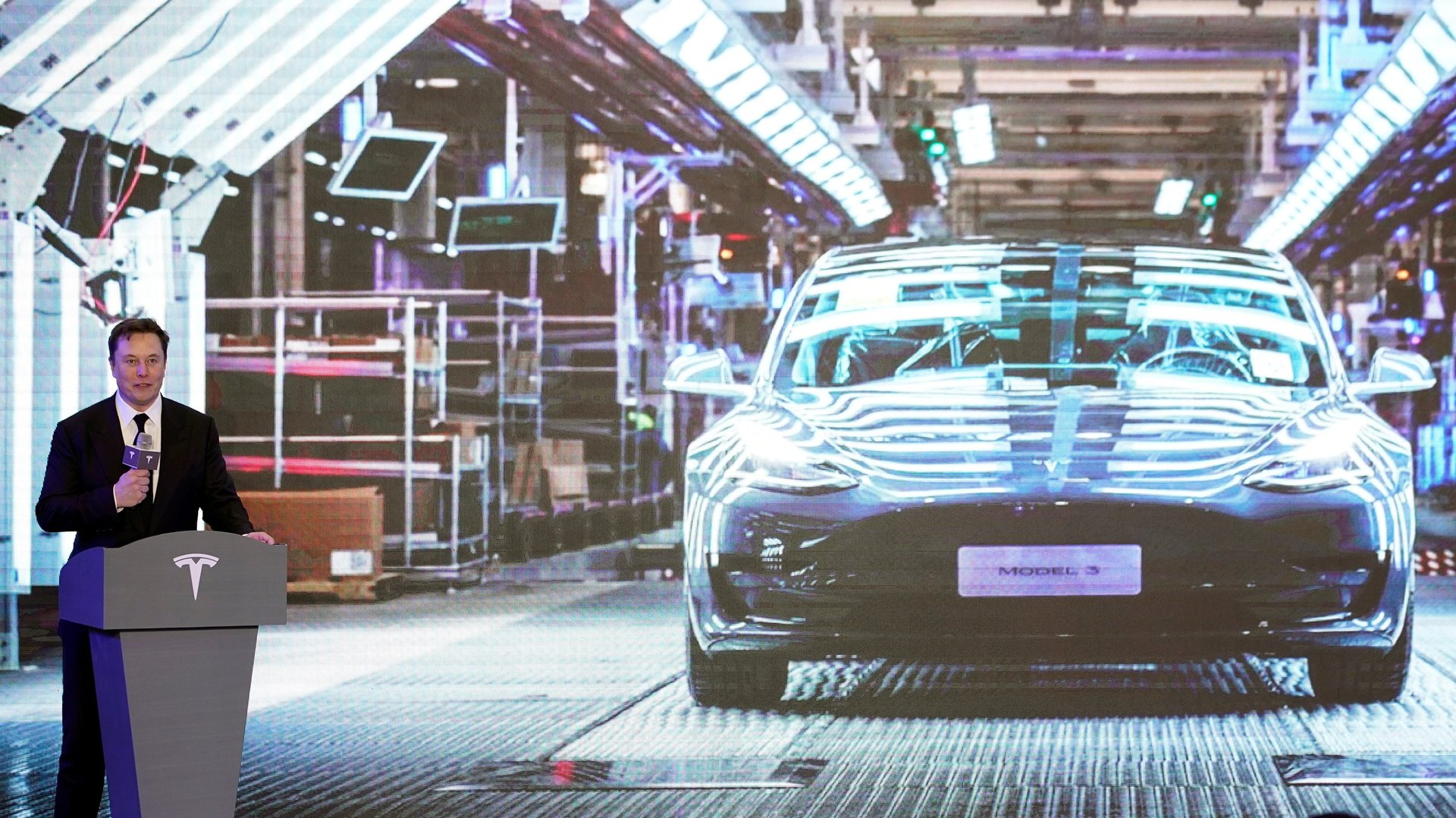Indian states are competing over Tesla production
Tesla’s India debut may seem nowhere in sight, even after months of negotiations. The past few days, however, have seen a spurt in welcoming gestures by various state governments for the electric vehicles giant to set shop under their administration.


Tesla’s India debut may seem nowhere in sight, even after months of negotiations. The past few days, however, have seen a spurt in welcoming gestures by various state governments for the electric vehicles giant to set shop under their administration.
Interestingly, while the Narendra Modi government holds the key for investment by the US electric car maker, it is the states run by opposition parties that have suddenly begun to express enthusiasm.
Over the past weekend, politicians and officials from five states—Telangana, Maharashtra, Punjab, West Bengal, and Tamil Nadu—have taken to Twitter to invite CEO Elon Musk to launch operations in their respective states, offering better infrastructure, sustainability, and a streamlined approval process.
Their pitches have followed Musk’s Jan. 12 post saying Tesla was still facing “a lot of challenges” with the Indian government.
Different states, different EV policy
For three years, Tesla has cited high import duty as a reason to not launch in India. In January, it registered its first India unit in the southern state of Karnataka. But there’s been no word on the launch itself.
Following Musk’s latest tweet on the matter, the first one to extend an invite was Telangana’s industry and commerce minister KT Rama Rao.
Telangana’s state EV policy (pdf) aims to attract private investments worth $4 billion (29,752 crore rupees) in the sector by 2030 through shared mobility, development of charging infrastructure, and the manufacture of both vehicles and energy-storage systems.
The state government has offered to extend tailor-made benefits to mega and strategic projects on a case-to-case basis.
Telangana’s enthusiasm for Tesla was also evident from the hugely popular Telugu language movie actor Vijay Devarakonda‘s tweet that followed Rao’s:
A day later, Ghulam Rabbani, a minister in the West Bengal government led by Chief Minister Mamata Banerjee, gave it a shot.
West Bengal aims to become a hub of sustainable transportation infrastructure (pdf), and intends to manufacture a million EVs across all segments until 2026.
On Jan.16, it was the turn of Jayant R Patil, the water resources minister of Maharashtra.
The EV policy of one of India’s most industrialised states supports the adoption of sustainable and clean mobility solutions. It is even considering a radical plan to deregister petrol/diesel vehicles.
Maharashtra has reportedly offered Tesla land parcels in and around Mumbai, Pune, and other spots.
A few hours after Patil’s tweet, Punjab Congress chief Navjot Singh Sidhu pitched the “Punjab Model” and his state’s single-window clearance for investments. Punjab is looking to make Ludhiana a hub for EVs and batteries.
On Jan. 17, Tamil Nadu’s minister of archaeology Thangam Thennarasu joined the bandwagon.
Tesla’s India ambitions face hurdles
A key stumbling block in Tesla’s India plan is the import duties, which are the world’s highest: 60% on EVs priced $40,000 (29.7 lakh rupees) or less and 100% on those priced above $40,000.
Tesla wants the taxes on fully assembled EVs to be 40%. For context, its cars are priced at a minimum of $44,690 in the US, which essentially means the company will face a 100% import tax in India.
During a meeting between Musk and Modi in September, Tesla had made known the economic unviability of investing in India under the current tax structure.
The auto industry, too, is divided on the matter. While Audi, Mercedes-Benz, and Hyundai India, all of whom sell imported EVs in India, have backed Tesla’s stance, homegrown Ola Electric and Tata Motors are concerned.
State of India’s EV industry
India’s enthusiasm for EVs isn’t reflected enough in the development of infrastructure required for the sector to flourish: The country has 947,876 registered EVs today but only 1,028 public charging stations.
Any company that can make EVs affordable will potentially rule the market. However, the challenges are multiple.
“The product is currently expensive because of a couple of reasons: one is due to import of raw materials and other is due to expensive batteries. If we can take care of both the elements by manufacturing both of them domestically then the pricing factor could be solved,” Ashwini Tiwary, co-founder and CEO of a Pune-based EV tech firm, Autobot India, told Quartz in October.
While the central and state governments are proactively pushing the adoption of EVs, their efforts are primarily aimed at stimulating local manufacturing of EVs.
In most states, the road tax and registration fees for electric four-wheelers are completely waived off. This indicates India definitely wants to emerge as a leading EV hub.
But clearly, that’s not enough.